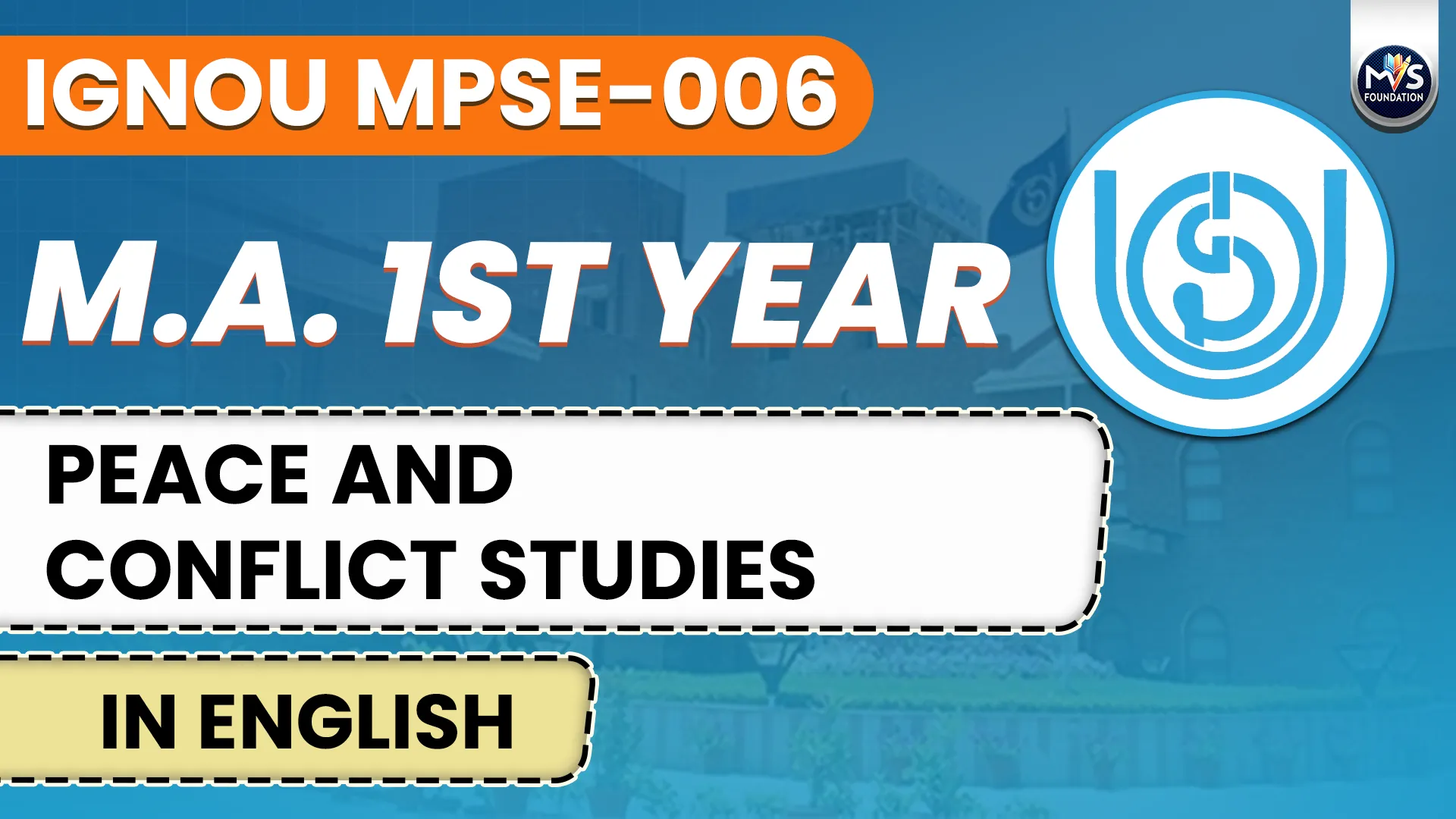
Get in Touch
We will get back to you within 24 hours.
Welcome to MVS Blog

Q1 Do you agree that human nature is inherently aggressive? What do you understand by negative and positive peace? Explain.
Answer -
Introduction
There are three major approaches to understanding human nature:
1. Human nature is inherently peaceful
According to this view, human nature is peaceful, kind, and cooperative. Feelings like compassion, love, and empathy are present from birth. Many religious traditions believe that humans are a special creation of God, capable of living a good and moral life. A person shapes their own future and moves toward progress. So, it is believed that human nature is basically peaceful.
2. Human nature is inherently aggressive
According to this view, humans naturally have anger, greed, and violent tendencies. Many religions believe that good and evil both exist in humans, and there is a constant struggle between them. In Christianity, the idea of 'original sin' and in Buddhism, desire is seen as the cause of conflict. Psychologists also believe that in tough situations, a person can become aggressive. So, this view says that human nature is basically violent and selfish.
3. Human nature is transformed by social relationships
According to this view, a person is neither completely peaceful nor fully aggressive. Human nature is shaped by society, relationships, and environment. When people interact, communicate, and work together, their behavior takes form. This view believes that human nature is not fixed, but keeps changing through education, culture, and experiences.
Negative and Positive Peace:
Peace
Negative and positive concept of peace
Conclusion
In the end, it is more appropriate to say that human nature is neither completely aggressive nor completely peaceful, but it is shaped by social conditions. Similarly, peace is not just the absence of conflict, but the presence of justice, equality, and cooperation. Therefore, the establishment of positive peace can lay the foundation of a lasting, humane, and balanced society.
0 Response